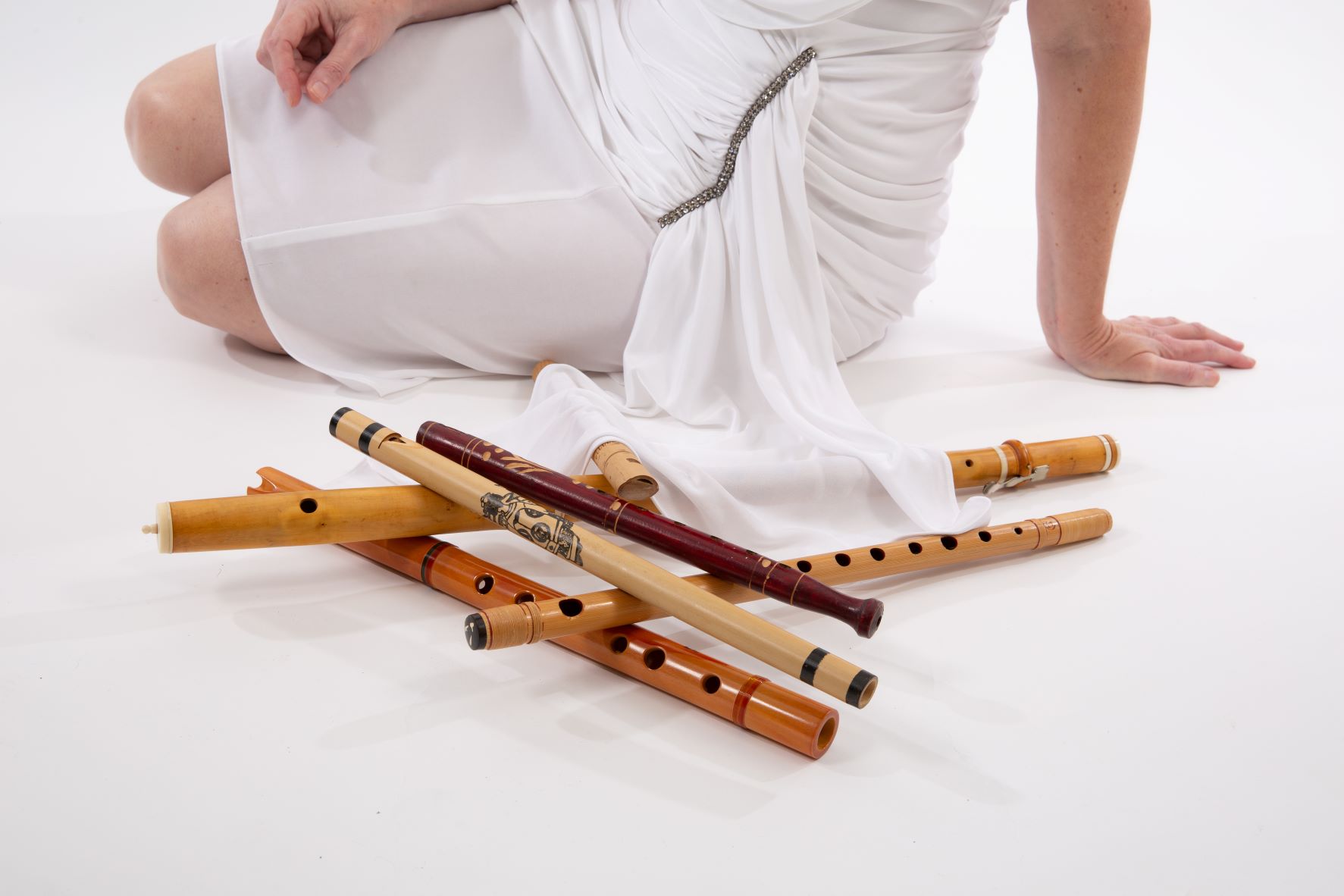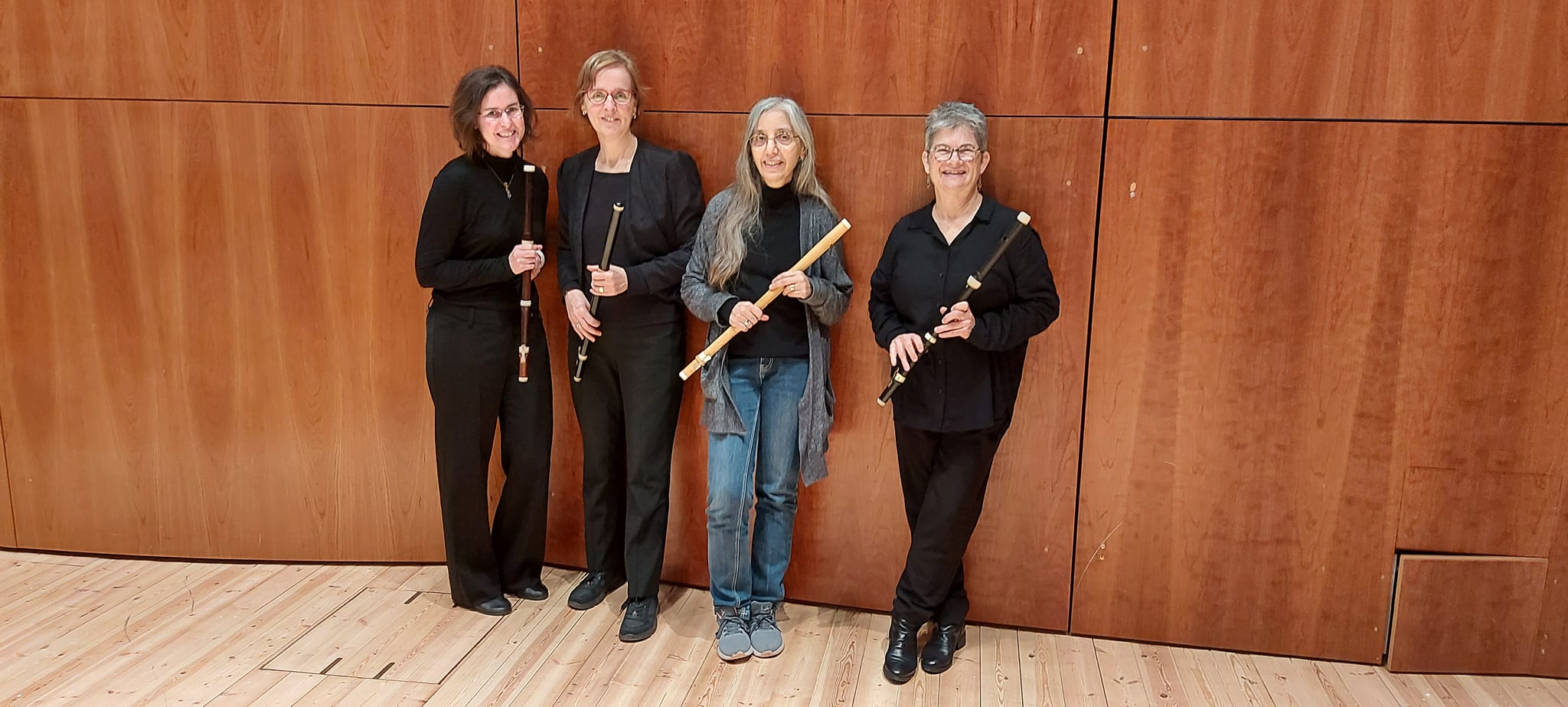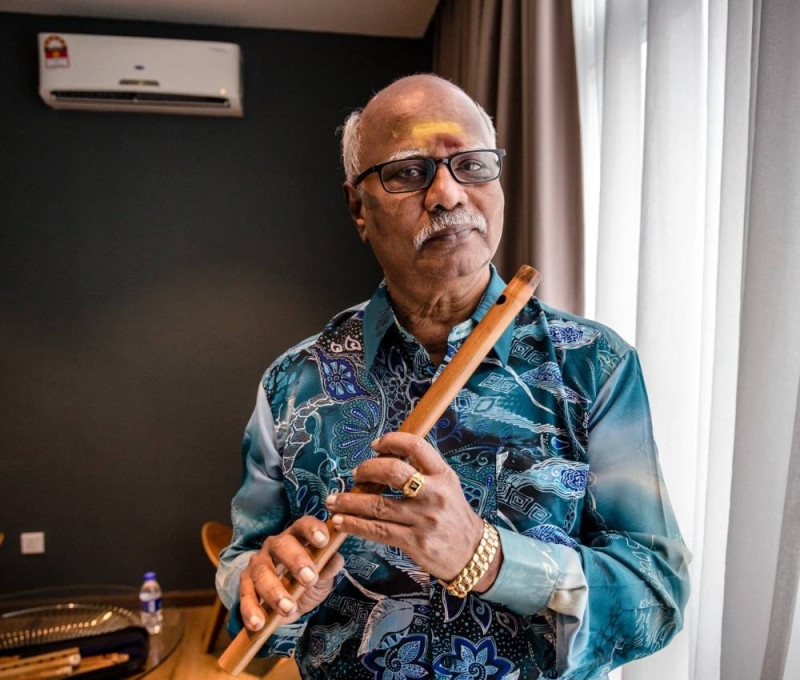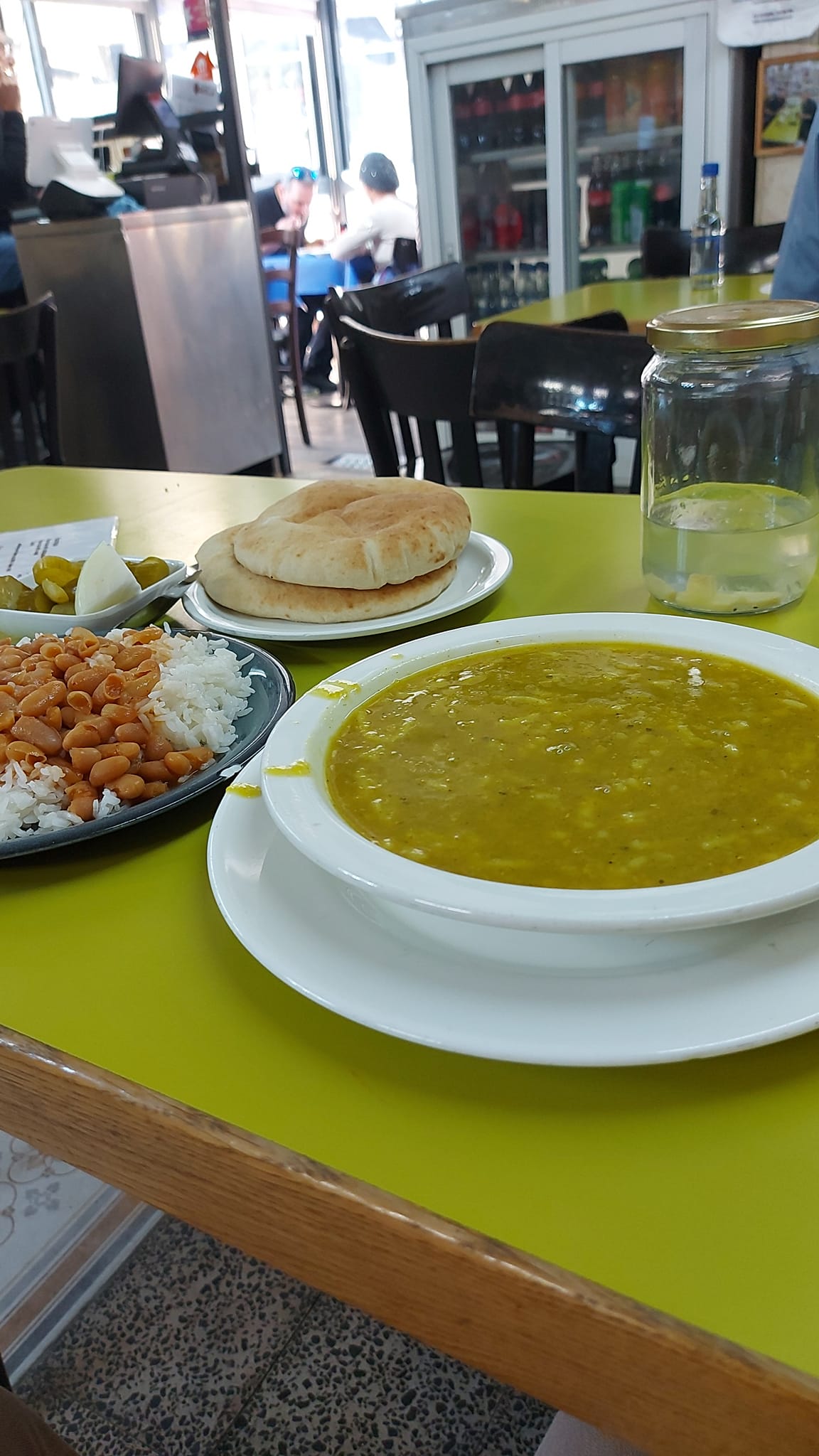A manuscript of the composer Victor Ullman as written by him while in the Terezin concentration camp during WWII
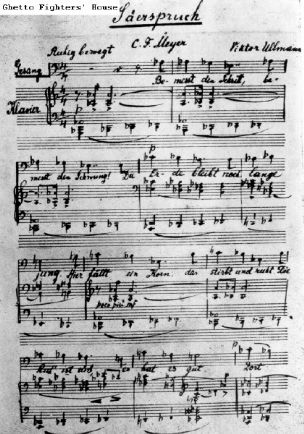
Viktor Ullmann was born on 1 January 1898 in Těšín (Teschen), which belonged then to Silesia in the Austro-Hungarian Empire and is now divided between Cieszyn in Poland and Český Těšín in the Czech Republic.טשן Both his parents were from families of Jewish descent, יהודיות but had converted to Roman Catholicism before Viktor's birth.קתוליות As an assimilated Jew, his father, Maximilian, was able to pursue a career as a professional officer in the army of the Austro-Hungarian Empire. האימפריה האוסטרו-הונגרית; במלחמת העולם הראשונה In World War I he was promoted to colonel and ennobled.
ב-8 בספטמבר 1942 גורש אולמן לגטו טרזיינשטטOn 8 September 1942 he was deported to the Theresienstadt concentration camp. Up to his deportation his list of works had reached 41 opus numbers and contained an additional three piano sonatas, song cycles on texts by various poets, operas, and the piano concerto Op. 25, which he finished in December 1939, nine months after the entry of German troops into Prague. Most of these works are missing. The manuscripts presumably disappeared during the occupation. Thirteen printed items, which Ullmann published privately and entrusted to a friend for safekeeping, have survived. The particular nature of the camp at Theresienstadt enabled Ullmann to remain active musically: he was a piano accompanist, organized concerts ("Collegium musicum", "Studio for New Music"), wrote critiques of musical events, and composed, as part of a cultural circle including Karel Ančerl, Rafael Schachter, Gideon Klein, Hans Krása, and other prominent musicians imprisoned there. He wrote: "By no means did we sit weeping on the banks of the waters of Babylon. Our endeavor with respect to arts was commensurate with our will to live." On 16 October 1944 he was deported to the camp at Auschwitz-Birkenau, where on 18 October 1944 he was killed in the gas chambers.קונצ'רטו לפסנתר אופוס 25, שאותו סיים בדצמבר 1939One writer has described Ullmann's milieu in these terms: "Like such other assimilated German-speaking Czech Jews as Kafka and Mahler, Ullmann lived a life of multiple estrangements, cut off from Czech nationalism, German anti-Semitism and Jewish orthodoxy".
“It must be emphasized that Theresienstadt has served to enhance, not to impede, my musical activities, that by no means did we sit weeping on the banks of the waters of Babylon, and that our endeavour with respect to Arts was commensurate with our will to live.”
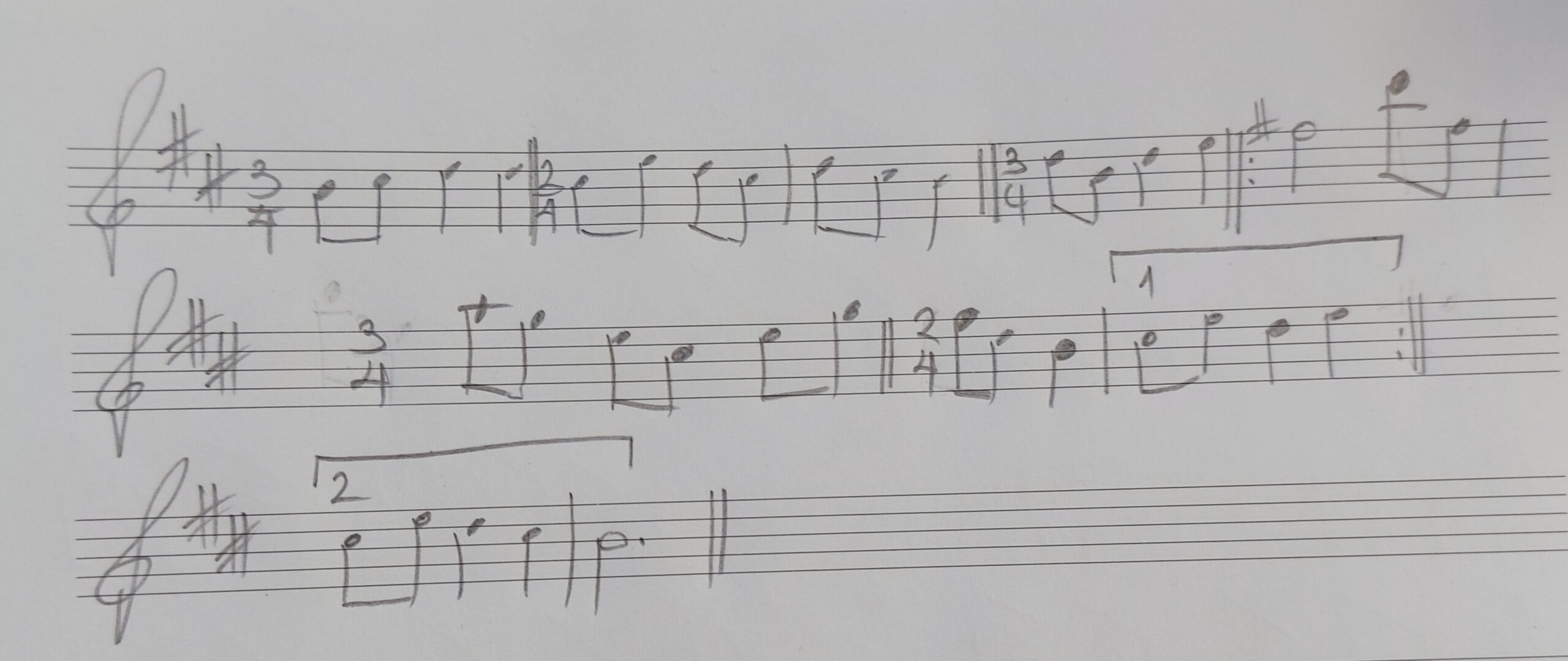
למי שרוצה לנגן את השיר הנפלא שניגנתי בחליל – הנה התווים (:
Photography: Ayelet Payento
